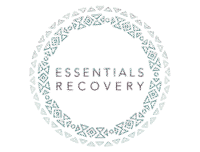Recovery from addiction is a journey that can feel isolating, but it does not have to be walked alone. Peer support programs provide an invaluable community of individuals who understand the struggles, challenges, and triumphs of overcoming substance use. These programs are designed to foster connection, encouragement, and accountability, which are crucial for long-term recovery. By finding a peer community, individuals gain a network of support that empowers them to sustain sobriety and rebuild their lives.
Peer support programs are built on shared experiences. Unlike traditional counseling alone, these programs provide opportunities for individuals to connect with others who have faced similar obstacles, helping to normalize the recovery process and reduce feelings of isolation. The sense of belonging that arises in these communities often serves as a critical foundation for emotional and psychological stability.
Understanding Peer Support Programs
Peer support programs are structured initiatives that bring together individuals who are in recovery or seeking recovery from addiction. These programs can take many forms, including 12-step groups, recovery coaching, peer mentoring, and community-based support meetings. They emphasize the power of shared experience, mutual encouragement, and accountability in fostering long-term success.
One of the primary goals of peer support programs is to provide a safe and non-judgmental space for participants. In these communities, individuals can openly discuss challenges, fears, and successes without the stigma that often accompanies addiction. This safe environment encourages honest self-reflection, emotional expression, and the development of coping strategies.
The Benefits of Peer Support
Peer support programs offer numerous benefits for individuals in recovery. First, they provide emotional support. Being surrounded by people who understand the struggles of addiction can reduce feelings of loneliness, shame, and guilt. Participants gain reassurance that they are not alone and that recovery is possible.
Second, peer programs promote accountability. Regular meetings, check-ins, and peer mentoring create a structure that encourages individuals to maintain their recovery commitments. Knowing that others are invested in their progress can motivate participants to stay on track, especially during challenging moments.
Third, these programs provide practical guidance. Peer mentors and experienced members often share strategies for managing triggers, coping with cravings, and navigating daily life in sobriety. Learning from someone who has successfully navigated similar challenges can be both inspiring and educational.
Finally, peer support programs foster personal growth. By engaging with a supportive community, individuals develop communication skills, empathy, and resilience. These skills not only aid in recovery but also improve overall life satisfaction and interpersonal relationships.
Finding the Right Peer Community
Not all peer support programs are the same, and finding the right community is essential for maximizing the benefits of participation. Factors to consider include the structure of the program, the philosophy it follows, and the type of support offered.
Some individuals may benefit from structured programs like 12-step groups, which provide a step-by-step approach to recovery and emphasize principles such as honesty, responsibility, and spiritual growth. Others may prefer non-12-step programs that focus on personal empowerment, cognitive behavioral techniques, or secular approaches.
Geographic location, meeting frequency, and the diversity of participants are also important considerations. Some individuals may thrive in smaller, intimate groups, while others may prefer larger communities with a broad range of perspectives. Online peer support programs have also grown in popularity, providing accessible options for individuals who may have mobility limitations or live in rural areas.
The Role of Peer Mentorship
Peer mentorship is a central element of many support programs. Mentors are individuals who have successfully navigated recovery and now provide guidance to others who are earlier in their journey. This one-on-one support offers a personalized approach to recovery, helping mentees develop coping strategies, set goals, and navigate challenges.
The mentor-mentee relationship also benefits the mentor, reinforcing their commitment to sobriety and providing a sense of purpose. Both parties gain a sense of community, mutual respect, and shared growth. Mentorship fosters accountability, as mentees are encouraged to take active steps toward recovery while mentors provide encouragement and guidance.
Encouraging Accountability Through Peer Programs
Accountability is one of the most effective tools in sustaining recovery. Peer programs often incorporate structured check-ins, goal-setting, and shared progress reports to ensure participants remain engaged. By knowing that others are monitoring their progress and celebrating their successes, individuals feel motivated to continue making positive choices.
Accountability also helps individuals navigate setbacks. Relapse can be a part of the recovery journey, and peer support programs provide a non-judgmental environment where participants can openly discuss challenges and receive guidance on regaining stability. The presence of a supportive community ensures that individuals do not face these difficulties alone.
Emotional Support and Coping Skills
Recovery is as much an emotional process as it is a physical one. Peer support programs provide emotional stability by creating a space for individuals to share feelings, fears, and frustrations. This emotional outlet reduces stress, promotes self-awareness, and fosters resilience.
Participants often learn coping skills through observing others, receiving guidance from mentors, and engaging in group discussions. Techniques may include mindfulness practices, stress management strategies, and communication skills that help navigate relationships and social challenges. These coping tools are essential for maintaining long-term sobriety.
Community Connection Beyond Meetings
Peer support programs extend beyond formal meetings. Many participants form friendships, accountability partnerships, and social networks that provide ongoing encouragement. These connections help individuals integrate recovery into daily life, creating a sense of normalcy and belonging.
Community involvement can also include volunteering, attending recovery events, or participating in recreational activities with other members. Engaging in meaningful activities strengthens the sense of purpose, builds confidence, and reinforces the commitment to a sober lifestyle.
Overcoming Barriers to Participation
While peer support programs offer substantial benefits, some individuals may encounter barriers to participation. Social anxiety, fear of stigma, transportation issues, or a lack of local resources can make engagement challenging.
Addressing these barriers may involve exploring online support options, seeking guidance from a counselor, or starting with small, informal peer connections. It is important to remember that every journey is unique, and finding the right community may require patience and persistence. The key is to remain open to support and willing to engage with others who share a commitment to recovery.
Long-Term Engagement and Sustained Recovery
Sustained engagement in peer support programs is a critical factor in long-term recovery. Recovery is an ongoing process, and continuous involvement ensures that individuals maintain the skills, relationships, and coping strategies necessary to navigate challenges.
Peer communities provide a platform for lifelong growth, encouraging members to take active roles in mentoring, leading discussions, and supporting newcomers. This ongoing involvement reinforces commitment, builds leadership skills, and strengthens the overall recovery network.
Celebrating Success and Growth
One of the most rewarding aspects of peer support programs is celebrating milestones and achievements. Sharing successes, no matter how small, reinforces motivation and encourages others in the community. These celebrations create a culture of positivity, hope, and mutual support, reminding participants that progress is possible and recovery is achievable.
Recognition of personal growth also enhances self-esteem, promotes confidence, and helps individuals maintain focus on long-term goals. Being part of a supportive community allows participants to see their journey as part of a larger network of shared experience, reinforcing the sense of purpose and belonging.
Conclusion: Finding Strength in Community
Peer support programs are more than just meetings—they are communities built on empathy, understanding, and shared experience. They provide emotional stability, accountability, practical guidance, and opportunities for personal growth. By finding the right community, individuals in recovery can create a network of support that sustains their journey, reduces the risk of relapse, and promotes long-term well-being.
Recovery is a challenging process, but it is not one that anyone needs to face alone. Engaging with peer support programs allows individuals to connect with others who understand the path they are walking, providing encouragement, shared wisdom, and a sense of belonging. Strength in recovery comes from connection, and peer communities are a powerful resource for anyone seeking to rebuild their life and maintain lasting sobriety. Call us today at 855-509-1697.



